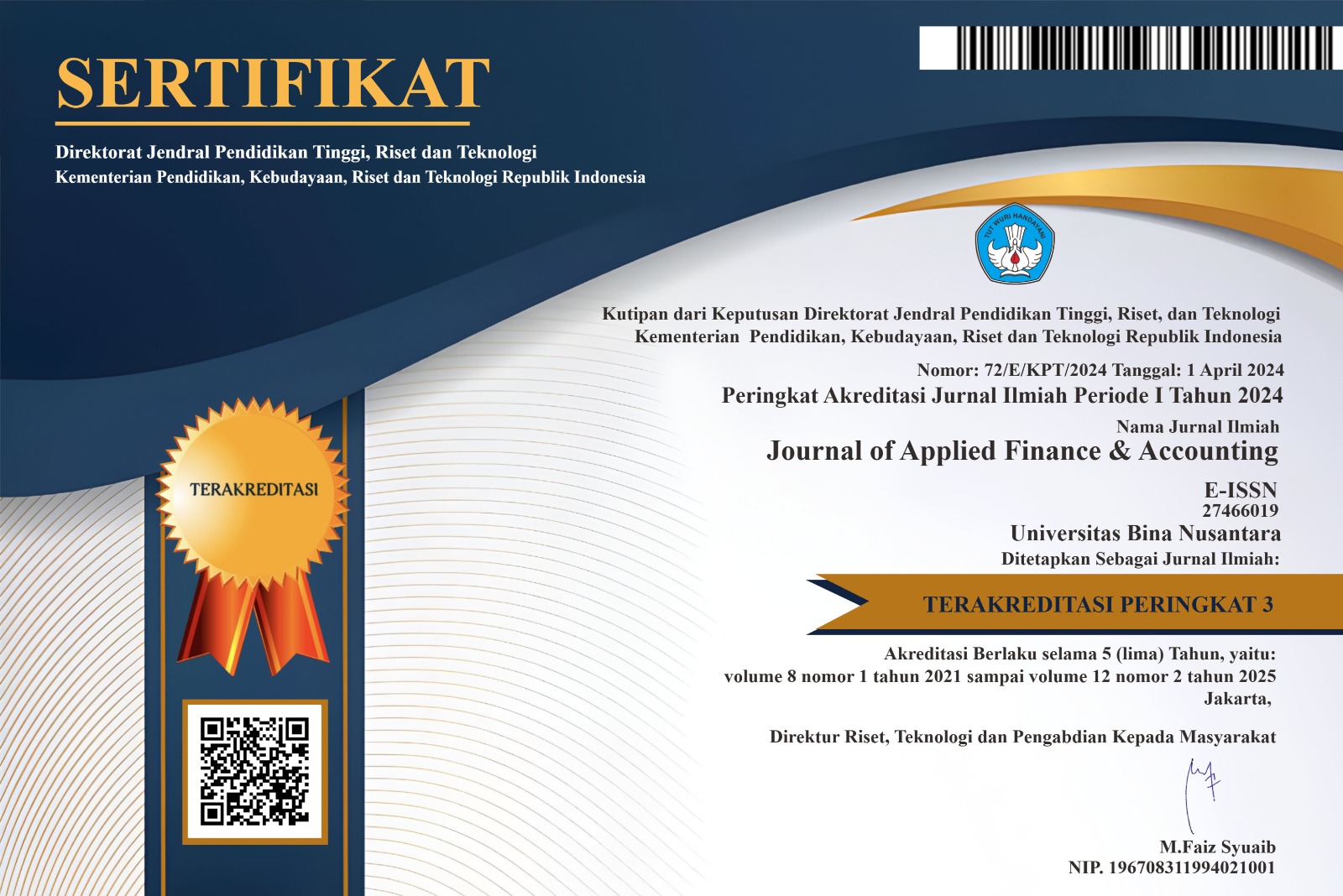THE INFLUENCE OF CORPORATE DISCLOSURE LEVEL ON COST OF EQUITY CAPITAL: EVIDENCE FROM INDONESIA
DOI:
https://doi.org/10.21512/jafa.v5i2.795Keywords:
corporate disclosure, cost of equity capital.Abstract
This research investigates the level of corporate disclosure in Indonesia and how corporate disclosure may influence company’s cost of equity capital. Moreover, this research is also wanted to investigate the profile of corporate disclosure in Indonesia.
The samples used in this research are companies that are listed in LQ-45 from 2006 to 2010. The corporate disclosure information is derived from the annual report. Moreover, related information required are also extracted from annual report, such as leverage, total asset and auditor quality. For data analysis, this research will employ a multiple regression to determine the association among variables. The result shows the disclosure level in Indonesia is actually affected cost of equity capital even though the level of significant is considered as low. As the conclusion, although most of companies does not disclosed information as the expected number of regulation, Indonesia capital market still can be considered as semi strong since the information that are available for public are actually affecting investors decision on investment.
Downloads
Published
Issue
Section
License
Authors who publish with this journal agree to the following terms:
Authors retain copyright and grant the journal right of first publication with the work simultaneously licensed under a Creative Commons Attribution License that allows others to share the work with an acknowledgement of the work's authorship and initial publication in this journal.
Authors are able to enter into separate, additional contractual arrangements for the non-exclusive distribution of the journal's published version of the work (e.g., post it to an institutional repository or publish it in a book), with an acknowledgement of its initial publication in this journal.
Authors are permitted and encouraged to post their work online (e.g., in institutional repositories or on their website) prior to and during the submission process, as it can lead to productive exchanges, as well as earlier and greater citation of published work (See The Effect of Open Access).




